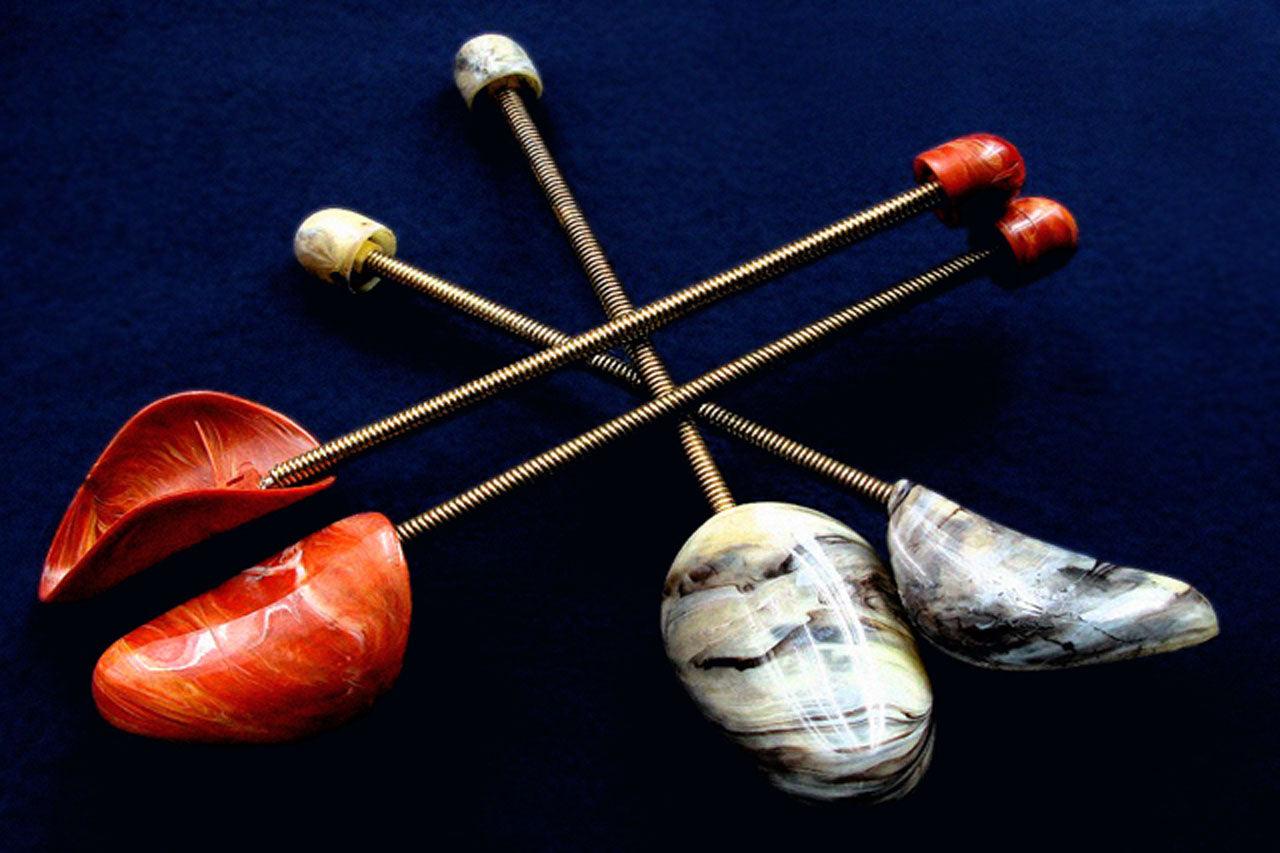Leather sandals are a popular choice for footwear due to their comfort and style. However, sometimes they can be a bit snug when you first get them. Fortunately, there are effective ways to stretch leather sandals to ensure a perfect fit without compromising the material's integrity. In this comprehensive guide, we will walk you through the process of stretching your leather sandals effortlessly. So, let's get started!
Understanding the Need to Stretch Leather Sandals

Leather sandals may initially feel tight, causing discomfort. This is common because leather is a material that can naturally conform to the shape of your feet over time. However, if you want to expedite the process or your sandals are exceptionally tight, stretching them is a viable solution.
Identifying Suitable Leather Sandals
Not all leather sandals are created equal. Some are more amenable to stretching than others. Before you proceed, ensure that your sandals are made of genuine leather and not a synthetic material. Genuine leather has more flexibility and can be stretched without damaging the material.
Preparing the Necessary Tools
To stretch your leather sandals effectively, you'll need some essential tools:
- A shoe stretcher
- Moisture source (water or alcohol)
- Socks
- Hairdryer
- Plastic bags
Gather these items before you begin.
Natural Methods for Stretching Leather Sandals
Moisture and Heat Technique
One of the most common methods is using moisture and heat. Here's how to do it:

- Dampen a pair of socks with water or rubbing alcohol.
- Wear the damp socks and then put on your leather sandals.
- Use a hairdryer to apply heat to the tight areas for a few minutes.
- Keep the sandals on until they cool down and dry completely.
Freezing Method
Another natural method involves freezing your sandals:
- Fill two plastic bags with water and seal them.
- Place one bag inside each sandal.
- Put the sandals with the bags in the freezer overnight.
- Remove them the next day and let the ice thaw.
Alcohol Spray Technique
Alcohol can help soften the leather:
- Spray rubbing alcohol on the tight areas of your sandals.
- Put on the sandals and wear sandals until they dry completely.
Mechanical Methods for Stretching Leather Sandals
Using a Shoe Stretcher
A shoe stretcher is a handy tool for this purpose:
- Insert the stretcher into your sandals.
- Gradually expand it to stretch the sandals.
- Leave it in for a day or two to allow the leather to adjust.
Using Socks and a Hairdryer
This DIY method requires socks and a hairdryer:

- Put on a thick pair of socks.
- Wear your leather sandals.
- Use a hairdryer to apply heat to the tight spots.
- Keep them on until the sandals cool and dry.
Professional Assistance for Stretching Leather Sandals
If you're unsure about stretching your leather sandals yourself, consider seeking help from a professional cobbler or shoe repair shop. They have the expertise and equipment to stretch your sandals without causing damage.
Caring for Your Stretched Leather Sandals
After successfully stretching your leather sandals, it's crucial to take care of them to maintain their shape and quality. Regularly condition and clean your sandals to prevent them from drying out and cracking.
Tips and Tricks for Leather Sandal Maintenance
- Store your leather sandals in a cool, dry place.
- Avoid prolonged exposure to direct sunlight.
- Use a leather conditioner to keep the material supple.
- Rotate your sandals to prevent excessive wear on one side.
- Clean them with a damp cloth and mild soap when necessary.
Common Mistakes to Avoid
- Overstretching: Be cautious not to stretch your sandals too much, as this can damage the leather.
- Using excessive heat: Always use a hairdryer on the lowest heat setting to avoid damaging the leather.
- Skipping maintenance: Neglecting to care for your leather sandals can lead to premature wear and tear.
Conclusion
Stretching leather sandals can provide a more comfortable fit, making them a joy to wear. Whether you choose natural or mechanical methods, remember to handle your sandals with care to maintain their quality and longevity.
FAQs
Q1: How long does it take to stretch leather sandals?Ans: The time it takes to stretch leather sandals can vary depending on the method used and the tightness of the sandals. It may take anywhere from a few hours to a couple of days for the process to complete.
Q2: Can I use water to stretch my leather sandals?
Ans: Yes, water can be used in the stretching process. Dampening socks or spraying rubbing alcohol on the tight areas of your sandals can help soften the leather and make it more pliable.
Q3: Are there any risks associated with stretching leather sandals?
Ans: There are minimal risks if you follow the proper techniques. However, overstretching or using excessive heat can damage the leather. Always exercise caution and follow the instructions carefully.
Q4: Can I stretch sandals made of synthetic leather?
Ans: Synthetic leather may not respond as well to stretching methods as genuine leather. It's best to consult the manufacturer's guidelines or a professional for advice on stretching synthetic leather sandals.
Q5: What can I do if my leather sandals still feel tight after stretching?
Ans: If your leather sandals still feel tight after stretching, you can repeat the stretching process or consider professional assistance from a cobbler or shoe repair shop.

0 comments